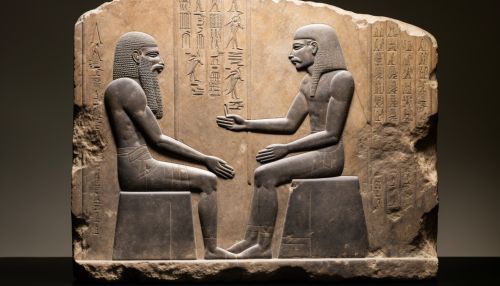Hammurabi
Early Life and Ascension
Hammurabi, born circa 1810 BC, was the sixth king of the First Dynasty of Babylon. He ruled from approximately 1792 BC until his death in 1750 BC. Hammurabi's father, Sin-Muballit, abdicated due to failing health, allowing Hammurabi to ascend to the throne.
Reign and Achievements
Hammurabi's reign is most celebrated for the promulgation of his law code, one of the oldest deciphered writings of significant length in the world. The code, inscribed on a stele, consists of 282 laws, with scaled punishments adjusting "an eye for an eye, a tooth for a tooth" (lex talionis) as graded depending on social status, of slave versus free, man or woman.


Hammurabi's code was not the first such law code, but it was one of the most comprehensive of its time. It covered topics such as trade, theft, and property rights, as well as family law, civil law, and criminal law. The code also detailed the process for legal proceedings and established penalties for unjust accusations, false testimony, and injustice done by judges.
Hammurabi also made significant improvements to the city of Babylon, transforming it from a small city-state into the dominant kingdom of Mesopotamia. He constructed temples, renovated and built canals and walls, and improved infrastructure.
Military Campaigns
Hammurabi was also a successful military leader, expanding the Babylonian Empire through a series of campaigns against neighboring kingdoms. His most notable conquest was the defeat of the Elam kingdom and the incorporation of its territories into his empire.
Death and Legacy
Hammurabi died in 1750 BC and was succeeded by his son, Samsu-iluna. His death marked the beginning of the decline of the Babylonian Empire, which was gradually eroded by the attacks of neighboring kingdoms.
Despite the eventual fall of his empire, Hammurabi's legacy endures, primarily through his law code. The Code of Hammurabi is a significant document in the history of law, providing insight into the legal and social structures of ancient Mesopotamia. It also influenced later legal codes, including the biblical laws of the Old Testament.
